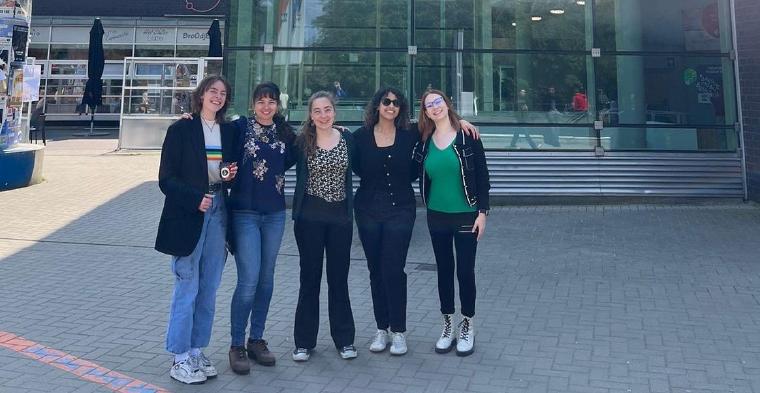The EUTOPIA Learning Community "Inequalities in Contemporary Societies" is organising a series of online lectures :
--> To attend the lectures, please register
here, or visit the Learning Community page
here.
1 - April 25, at 5pm CET – Inequalities and welfare state transformations in Central and Eastern Europe after 1989.
Lecturer: Cristina Raț, Sociology Department, UBB
Abstract. The social and economic transformations of Central and Eastern European countries after the 1989 fall of self-declared communist regimes brought along deepening social inequalities and new forms of poverty, precarious labour, and marginalization. Which categories of the population became most vulnerable to the negative effects of enlarging inequalities? Which were the prevalent social policy responses to the problem of poverty? How did welfare states evolve in terms of redistributive capacity and inequality reduction after EU integration? The presentation aims to address these questions with the help of comparative data on four CEE countries with different post-socialist trajectories: Hungary, Poland, Romania, and Slovenia.
Recommended readings:
Adăscăliței, Dragoș (2012). Welfare state development in Central and Eastern Europe: a State of the Art Literature Review. Studies in Transition States and Societies, Vol. 4(2): 59-70.
Aidukaite, Jolanta (2010). Welfare reforms in Central and Eastern Europe: A New Type of Welfare Regime? Economika, Vol. 89(4): 7-24.
Blum, Sonja, J.Kuhlmann, K.Schubert (2020). Handbook of European Welfare Systems. Second edition, revised. London: Routledge. (country chapters on Central and Eastern European countries)
2
- May 23, at 5pm CET – Addressing digital, health, and education inequalities in Latin America through the Erasmus+ SmartNurse project
Lecturer: Jožica Čehovin Zajc & Hajdeja Iglič, University of Ljubljana in Slovenia.
Speakers:
Annukka Huuskonen, Tampere University of Applied Sciences (TAMK), Finland (project coordinator)
Jose Ismael Lopez Perez and Mirna Janete Bulnes, Universidad de El-Salvador (UES), El-Salvador
Dra. Aracely Díaz Oviedo, Universidad Autónoma de San Luis Potosí (UASLP), Mexico
A critical theoretical perspective, continuous research, good policy making, and implementation of policies are four important elements in the global fight against inequality. Academics should contribute to these endeavours in their own way, along with decison-makers and policy-makers. One possibility for academics to engage in this process represents the Erasmus+ program, which under 'Key Action 2: Cooperation among organisations and institutions' supports Capacity building in higher education; projects that enable collaboration and sharing best practices among academics. A good example of how inequalities can be addressed on an international level through the Erasmus+ program is the "SmartNurse - Developing Teachers' and Nursing Students' Competencies in Digital Nursing" project. The three-year project, which involves 7 partners from Finland (TAMK), Slovenia (UL), and Latin American higher education institutions from Mexico (UASLP, UAA) and El Salvador (UES, UGB, IEPROES), started in November 2020 and addresses digital, educational, and health inequalities in Latin America with the aim of modernizing the nursing education curriculum using digital tools and active learning methods. The major inequalities in the domains of digitalization, education, and healts are addressed by improving didactic approaches and the use of digital technologies in the education of nursing students, as well as in health promotion, disease prevention and health care for patients with chronic diseases at the primary health care level in Mexico and El Salvador. The Eutopia joint learning course will present an opportunity to make European students of social inequalities familiar with the project's aims, approaches and methods. The invited guests which include Latin American partners will share with students their first-hand experiences and discuss the challenges of running and implementing such a project.

